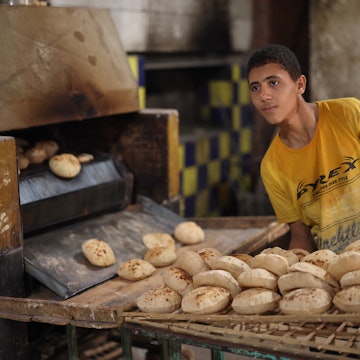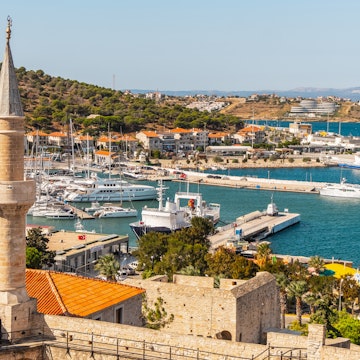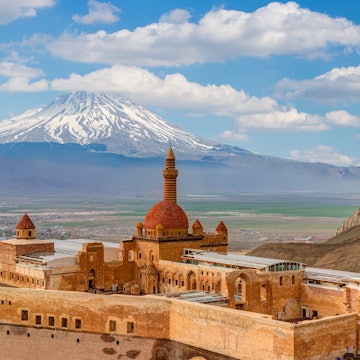

Türkiye makes some darn good cheese – like this melty kolot, a Black Sea specialty © Raul C7 / Shutterstock
When the subject of Türkiye's culinary richness comes to the fore, the variety of cheese (peynir) in the country is surprisingly not mentioned much. However, as an indispensable part of breakfast tables, a key ingredient of pastries such as börek and pide, and the surprise ingredient of some desserts, cheese is a prominent feature of the country's deep-rooted culinary wealth. In this article, you will learn about – and crave – some of the nearly 200 types of Turkish cheeses, region by region.
Eastern Türkiye
Let's start our journey from the eastern Anatolia region, the roof of Türkiye and home to much animal husbandry in its wide pastures – two of this region's cheeses have endeared themselves not only to Türkiye but also to the whole world. The first of these is Kars Graveyeri, with an origin that dates back to Swiss cheese maker David Moser's visit to this region in the late 1800s. This semi-hard cheese has a sharp taste and dark yellow color due to the fact that it's made from the milk of cows and goats that graze on the region's rich endemic plants.
Erzincan Tulumu (tulum, goatskin & sheepskin cheese sacks) is a cheese made from sheep's milk. Traditionally, the milk was first fermented in a sheep's stomach (called şirden), aged and then stuffed in sheep or goat skins. Today, due to the high production, cheeses are stored in packaging suitable for food safety. It is among the favorites of cheese lovers due to its white and creamy color, semi-hard structure and unique smell and taste. Different cities and regions in Türkiye have their own special take on tulum cheese, like in Çorum Kargı, Izmir and Bergama.

Western Türkiye
Ezine hails from western Türkiye, which has a geographical indication registration from the European Union. Named after the Ezine district of Çanakkale, this cheese is made by mixing different amounts of cow, sheep and goat milk. This process yields a medium-hard, full-fat cheese with a white to slightly yellowish color and small holes on its surface.
Mihaliç cheese is produced in the cities of Bursa and Balıkesir, and its history dates back to the Ottoman period. Made from sheep's milk, this salty, hard, slightly hole-y cheese is also used in preparing the famous Susurluk Toast.
Northern Türkiye
The Black Sea region is home to breathtaking plateaus, one-of-a-kind plant life and fresh springs that significantly impact the milk quality of the animals raised in this unique locale. Kolot cheese, made from full-fat cow's milk, is a key ingredient in the beloved Black Sea dish Kuymak (made with corn flour, butter, water and kolot cheese); it stands out for its delectable flavor, its rich yellow color and its remarkable melting quality.
Gümüşhane Deleme (known as teleme in different regions) is made from cow's milk with a process that doesn't use yeast. It has an intense milk flavor, a slight tartness and a semi-hard consistency. This yellow cheese melts when heated and can be eaten fresh or after its been ripened underground for a few months.
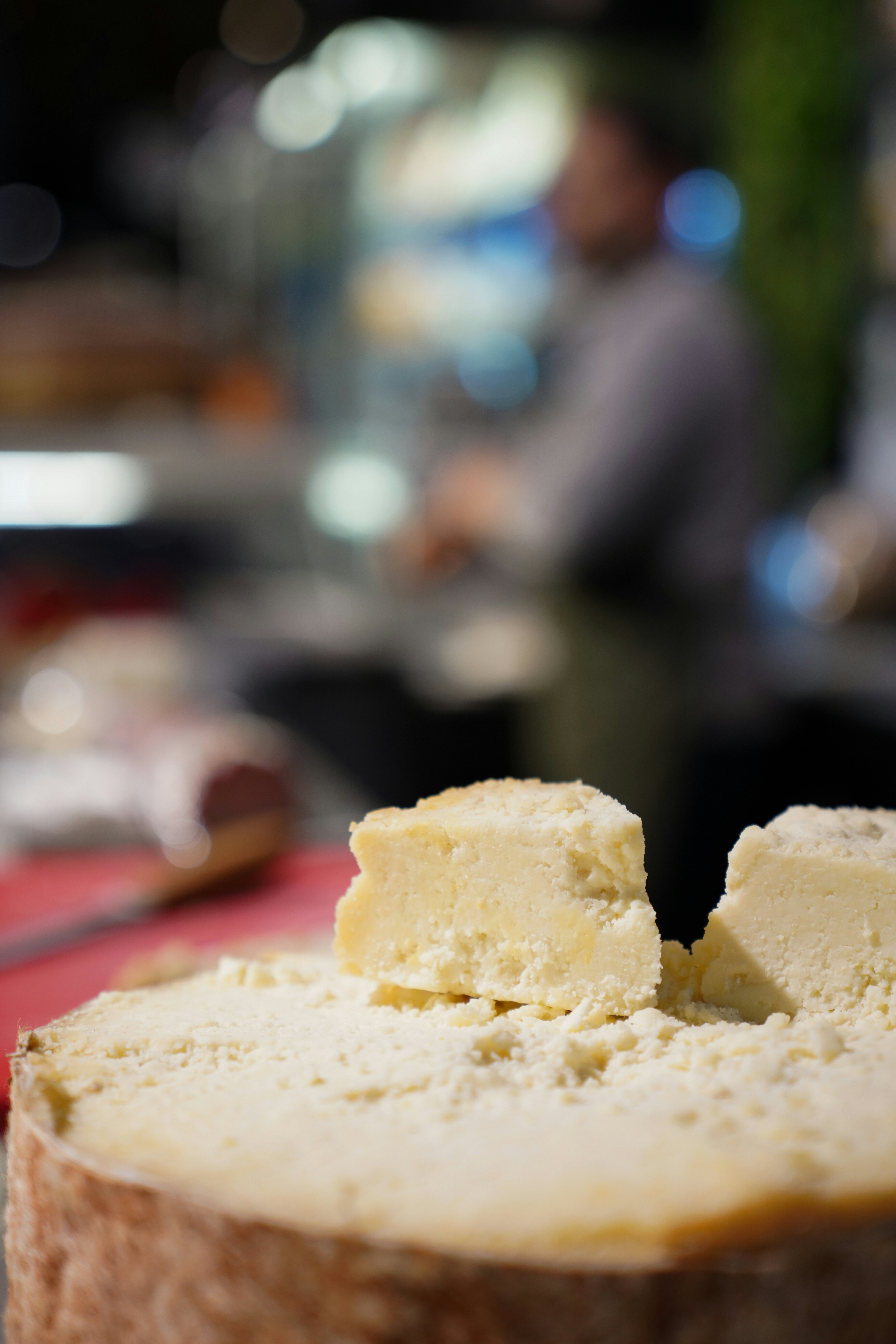
Central Türkiye
Divle Obruk Peyniri is made by ripening tulum cheese in the subterranean Divle Obruk (sinkhole) located within the borders of Karaman province. Cheeses are prepared with a mixture of cow, sheep and goat milk, using a production technique that has been emplopyed for centuries. The prepared cheeses are then pressed into tulums and placed in the sinkhole to ripen for three to six months. With the help of the mold flora of the cave, the tulums turn brick-colored, indicating that the cheeses are ready for consumption.
Yozgat Çanak cheese – made from sheep, goat and cow milk – undergoes a unique process. Water is removed with stones during the production phase, and the cheese is then put into earthenware bowls and buried in sand to ripen for a few months. The cheese is described as semi-fat and less ripe.
Southern Türkiye
Antakya Küflü Sürkü is crafted through a laborious process that involves using mold. The milk is first turned into yogurt, which is then converted into ayran (a salty yogurt drink) by adding water. From there, the ayran is turned into terayağı (butter) and tereyağı ayranı with the help of a yayık (a local butter churn). The tereyağı ayranı is boiled in pots and the curds that form are removed, filtered in cheesecloth and mixed with different spices like black pepper, chili pepper and cumin. The curds are cut into pear-shaped pieces and then covered with cheesecloth, dried, wrapped in paper and left in a airtight place to mold. After a few weeks, the mold at the surface of the cheese is removed and the cheese is ready for your plate.
Gaziantep Sıkma (also known as Antep Peyniri or Antep Sıkma Peyniri) is a salty cheese made from sheep or goat milk, or a mixture of the two. It comes in irregular pieces that are shaped by hand, and it has a flexible structure that gives it a chewy texture.
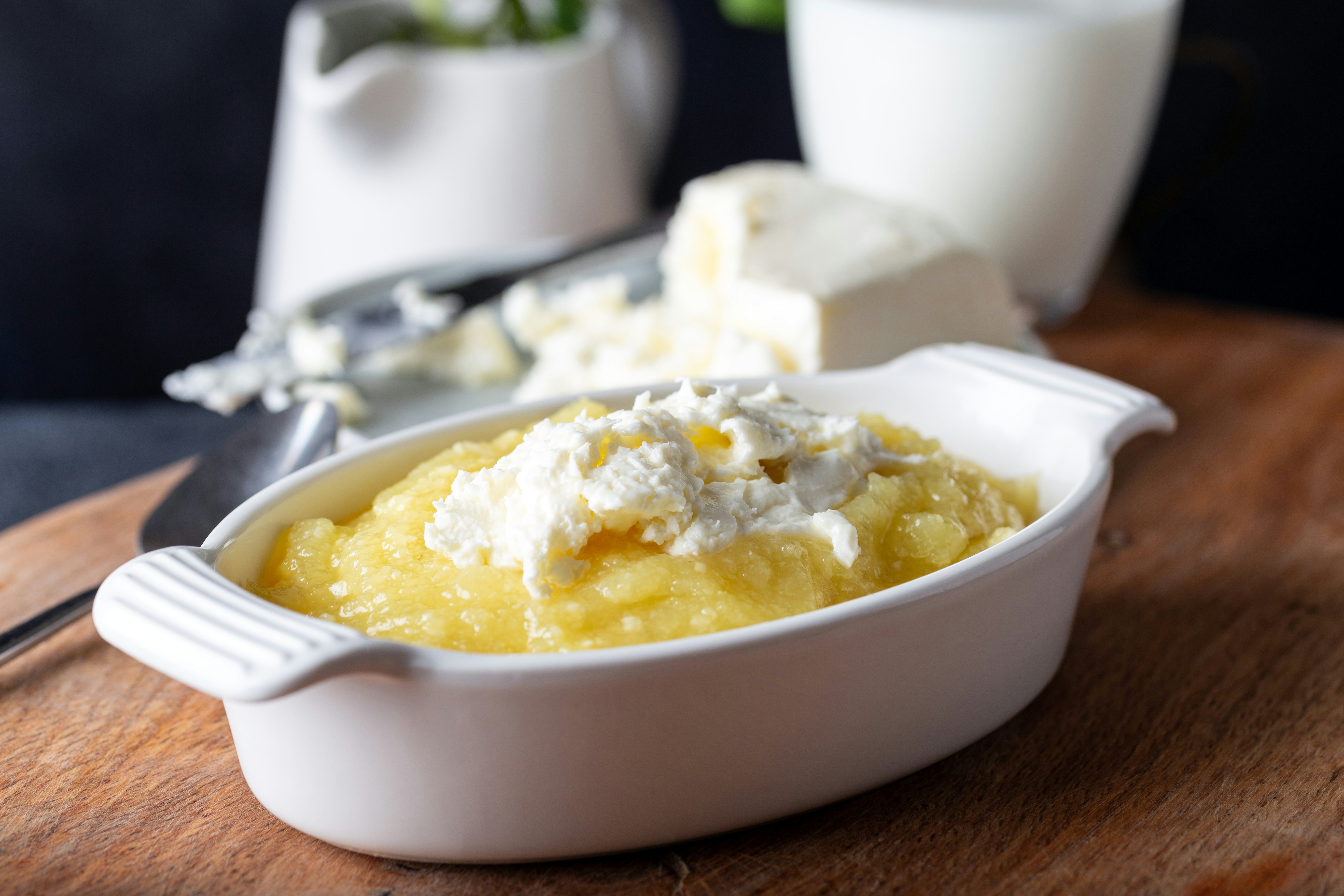
Desserts
In a dessert-loving country like Türkiye, of course you'll find sweet treats made with cheese. Sample the famous katmer (flaky pistachio pastry) of Aktakya, or the lor cheese dessert made in many places in the Northern Aegean. Don't miss out on the pudding-like höşmerim made in Balıkesir and its surroundings, or the hayrabolu dessert and cheese halva made in Thrace.









